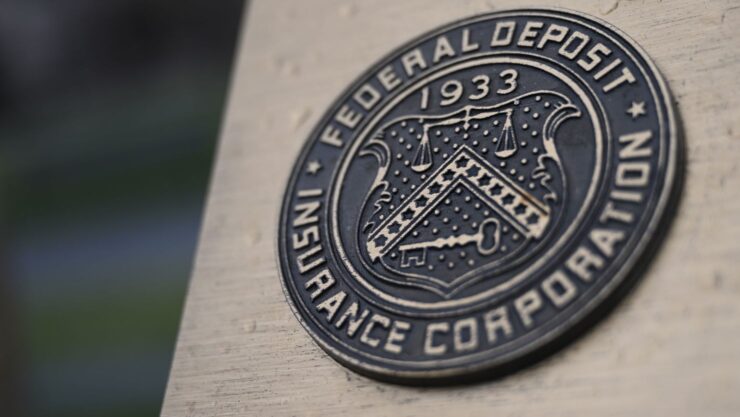In a sweeping policy shift under the Trump administration, the Federal Deposit Insurance Corporation (FDIC) on Friday rescinded its prior guidance that required banks to obtain clearance before engaging in cryptocurrency-related activities. The move marks a definitive break from the agency’s more cautious stance over the past three years.

In a public statement, Acting FDIC Chair Travis Hill declared the end of what he called a “flawed approach,” outlining a new direction that encourages innovation while still emphasizing prudential risk standards.
“With today’s action, the FDIC is turning the page on the flawed approach of the past three years,” Hill said.
“I expect this to be one of several steps the FDIC will take to lay out a new approach for how banks can engage in crypto- and blockchain-related activities in accordance with safety and soundness standards.”
The decision repeals the April 2022 Financial Institution Letter, which had urged FDIC-supervised banks to notify the agency before launching or expanding crypto-related offerings. That directive had been based on concerns that digital asset exposure could pose systemic risks to the banking sector—a fear that intensified after the collapse of several crypto-affiliated financial institutions in 2022 and 2023.
Now, with the new guidance, FDIC-regulated institutions will be permitted to pursue crypto-related products and services without seeking prior permission, provided their activities remain within the bounds of “permissible” banking functions and adhere to existing standards for safety and soundness.
Policy Reversal Ends ‘Operation Chokepoint 2.0’ Allegations
The FDIC’s policy overhaul represents not just a regulatory update but a complete departure from the Biden-era approach to crypto banking. Under the previous administration, internal documents obtained via Freedom of Information Act (FOIA) requests revealed a pattern of discouraging banks from engaging with digital asset firms—prompting accusations of backdoor pressure and informal enforcement.
Critics, including members of Congress and industry advocates, labeled the strategy “Operation Chokepoint 2.0,” a reference to a controversial Obama-era initiative that limited banking access for politically sensitive industries. In the crypto context, banks were allegedly warned about “reputational risk” when considering services for digital asset companies, despite the absence of formal rulemaking. The result was a de facto exclusion of crypto firms from critical financial infrastructure.
The FDIC’s reversal, backed by the Trump administration, effectively ends that posture and underscores a broader shift toward pro-crypto financial policy. The decision follows sustained pressure from lawmakers, venture capitalists, and crypto entrepreneurs who have argued that the U.S. was falling behind global competitors in digital finance. With the rollback in place, the financial industry is now expected to accelerate its push into tokenized products, custody solutions, and on-chain banking innovations under a lighter and more transparent regulatory regime.
Quick Facts:
- The FDIC no longer requires banks to obtain prior approval for engaging in cryptocurrency activities, reversing a 2022 policy.
- This change aligns with the OCC’s stance, allowing national banks to offer certain crypto services, including custody and stablecoin transactions.
- The policy shift is part of the Trump administration’s broader support for the crypto industry, despite concerns raised by some lawmakers about regulatory oversight.
- Banks can now explore new crypto-related products, potentially leading to increased adoption and integration of digital assets in traditional finance.





